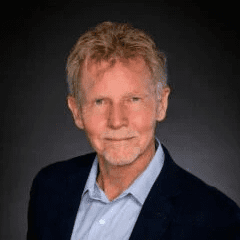How do the supershrinks do what they do? Are they made or born? Is it a matter of temperament or training? Have they discovered a secret unknown to other practicing clinicians, or are their superior results simply a fluke, more measurement error than reality?
Enter the Institute for the Study of Therapeutic Change, an international group of researchers and clinicians dedicated to studying what works in psychotherapy. For the past several years, the group has been tracking the outcomes of thousands of therapists treating tens of thousands of clients in myriad clinical settings. Like many other researchers, they found wide variations in therapeutic effectiveness among practicing clinicians and tried to determine why.
When they attempted to determine the characteristics of the most effective practitioners, they smacked headfirst into a brick wall. Neither the therapists’ person nor their technical prowess separated the best from the rest. In the end, nothing they could point to explained why some clinicians achieved consistently superior results.
The project would have remained shelved indefinitely had one of the members not stumbled onto the work of Swedish psychologist K. Anders Ericsson. Ericsson was widely considered “the expert on experts.” For the better part of two decades he’d been studying the world’s best athletes, authors, chess players, pianists, mathematicians, teachers, pilots, and others.
The key to superior performance? As absurd as it sounds, the best of the best simply work harder at improving their performance than others do. Such deliberate practice, as Ericsson points out, isn’t the same as the number of hours spent on the job, but rather the amount of time specifically devoted to reaching for objectives just beyond one’s level of proficiency.
For example, in a deliberate practice study of 20-year-old musicians, Ericsson and his colleagues found that the top violinists spent twice as much time (10,000 hours on average) working to meet specific performance targets as the next best players, and 10 times as much time as the average musician.
As time-consuming as this level of deliberate practice sounds—and it is—it isn’t enough. According to Ericsson, to reach the top level, attentiveness to feedback is crucial.
With considerable chagrin, the Institute for the Study of Therapeutic Change realized that what therapists do is irrelevant to greatness. The path to excellence would never be found by limiting their exploration to the world of psychotherapy, with its ancient theories, tools, and techniques. Instead, they needed to redirect their attention to deliberate practice and superior performance, regardless of calling or career.
Scott Miller
Scott D. Miller, PhD, is the founder of the International Center for Clinical Excellence an international consortium of clinicians, researchers, and educators dedicated to promoting excellence in behavioral health services. Dr. Miller conducts workshops and training in the United States and abroad, helping hundreds of agencies and organizations, both public and private, to achieve superior results. He is one of a handful of “invited faculty” whose work, thinking, and research is featured at the prestigious “Evolution of Psychotherapy Conference.” His humorous and engaging presentation style and command of the research literature consistently inspires practitioners, administrators, and policy makers to make effective changes in service delivery. Learn more at scottdmiller.com.
Mark Hubble
Mark Hubble, PhD, is a cofounder of the Institute for the Study of Therapeutic Change. He has co-authored and edited numerous professional articles and books, including The Heart and Soul of Change: What Works in Therapy; Escape from Babel; Psychotherapy with Impossible Cases; and The Heroic Client. Recently, Hubble co-released a self-help book, Staying on Top and Keeping the Sand Out of Your Pants: A Surfer’s Guide to the Good Life.
Barry L. Duncan
Barry L. Duncan, PsyD, is a therapist, researcher, trainer, and the CEO of Better Outcomes Now, the web and mobile application for PCOMS. He’s the author of 15 books and over 150 publications on PCOMS, the common factors in effective therapy, and client privilege.















